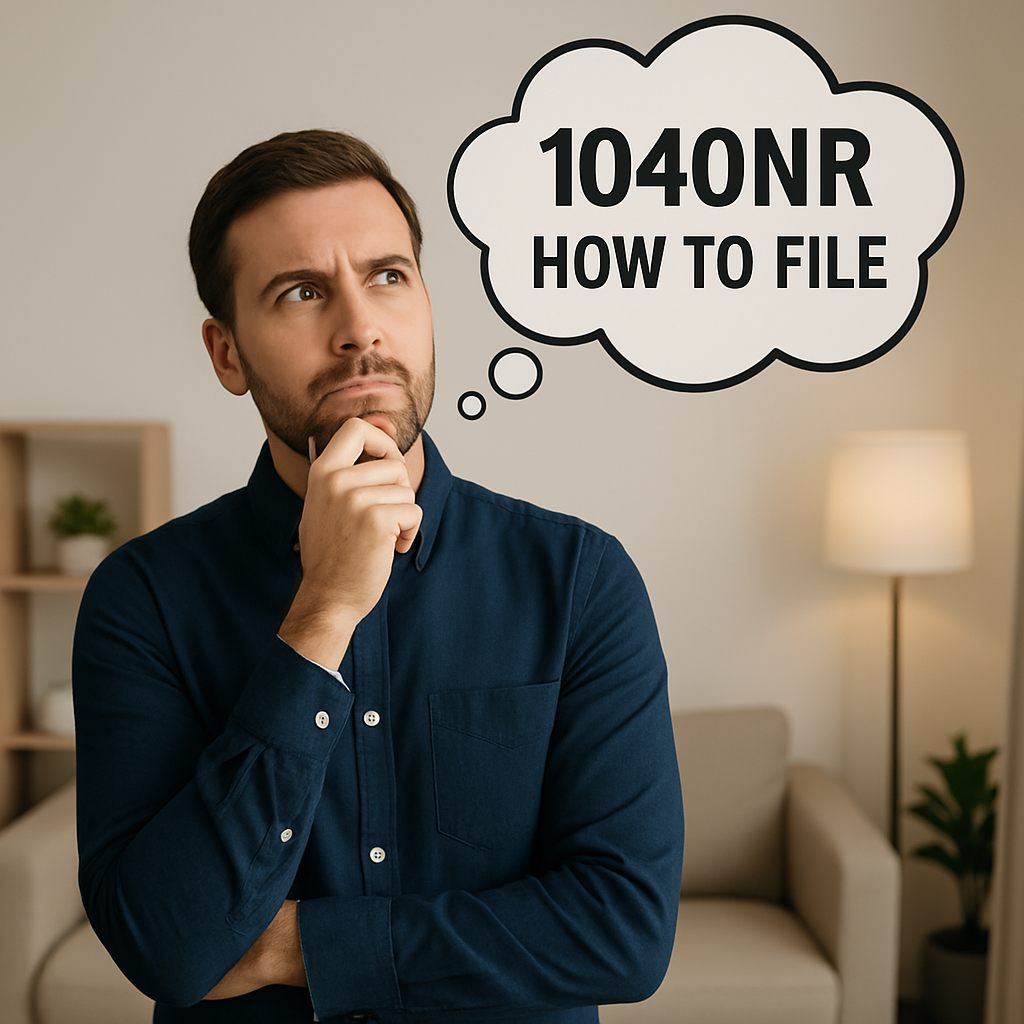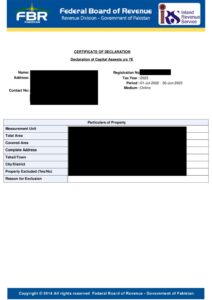Table of Contents
If you’re a Non-US Resident with a Single-Member LLC, you need to file Form 5472 and Form 1120 every year
Taxation For Single Member LLC as a Non-Resident
If you’re a foreigner living outside the U.S. and you’ve started a Single-Member LLC in the U.S., you’re required to file two forms every year: Form 5472 and Form 1120.
Who This Guide is For
This guide is specifically for foreigners who have started an LLC in the U.S. We’ll be discussing the tax responsibilities that come with this.
The Need for an EIN
To file Form 5472 and Form 1120, your LLC needs an Employer Identification Number (EIN). If you don’t have a Social Security Number (SSN) or an Individual Taxpayer Identification Number (ITIN), don’t worry. You can still get an EIN for your LLC. We have a guide on how to get an EIN without an SSN or ITIN.
What This Guide Covers
This guide provides a broad overview of Form 5472. It’s not a step-by-step instruction manual. Also, keep in mind that this isn’t your only reporting requirement with the IRS. We highly recommend that you team up with an accountant to navigate this process.
The Importance of Compliance
Take this requirement seriously. If Form 5472 isn’t filed or is filed incorrectly, the IRS can charge a minimum penalty of $25,000 USD (an increase from the previous $10,000).
Understanding Form 5472
What is Form 5472?
Introduced some time ago, the obligation for U.S. Corporations with foreign ownership to submit Form 5472 and Form 1120 has been longstanding. Nevertheless, the IRS, via TD 9796, has recently introduced fresh provisions to Section 1.6038A-1 within the Federal Regulations Code. These updated requirements became effective on January 1st, 2017, and now impact all Single-Member LLCs owned by foreign entities that act as Disregarded Entities.
What is Form 1120?
Form 1120 is another IRS document that foreign-owned U.S. Corporations are required to file. It also has new regulations, which were added along with Form 5472.
How do these changes affect Single-Member LLCs?
Since 2017, all Single-Member LLCs that are Disregarded Entities and owned by a foreign entity are treated as Corporations for federal reporting requirements. This means they must submit information to the IRS in the same way a Corporation would. However, this does not mean these LLCs are taxed like Corporations. They are simply reporting information like a Corporation.
What is a Disregarded Entity?
A Single-Member LLC is automatically considered a Disregarded Entity by the IRS unless the LLC has made a special election to be taxed as a Corporation. The term “disregarded” simply means the IRS “ignores” the LLC for federal tax purposes and taxes the LLC the same way the owner is taxed.
Who needs to file Form 5472 and Form 1120?
The following types of LLCs are required to file Form 5472 and Form 1120 every year:
- A Single-Member LLC that is Disregarded and owned by a non-US resident or foreign company
- A Single-Member LLC that is Foreign-owned and taxed as a Corporation
- A Multi-Member LLC that is taxed as a Corporation and has at least one Foreign owner that owns 25% or more of the LLC
Please note: If you own a Foreign-owned Multi-Member LLC taxed as a Partnership, filing Form 5472 and Form 1120 is not mandatory.
Direct and Indirect Ownership
Form 5472 and Form 1120 requirements apply to foreign-owned Single-Member LLCs that are owned directly or indirectly:
- Directly owned means that the owner is a foreign person or a foreign company
- Indirectly owned means the LLC is owned by another Disregarded Entity LLC, which then owns the Single-Member LLC
What is the Purpose of Form 5472?
The primary aim of Form 5472 and the accompanying regulations is to combat tax evasion by foreigners in the U.S. and to close any existing tax code loopholes.
Steps for Single-Member LLCs that are Foreign-Owned
Requirements for Foreign-Owned Single-Member LLCs
Foreign-owned Single-Member LLCs have certain requirements that they must fulfill:
- Get an Employer Identification Number (EIN): This is necessary for filing Form 5472 and Form 1120.
- File Form 5472 and Form 1120: These forms need to be filled out and submitted to the IRS. On Form 1120, only the LLC name, address (2 lines), EIN (B), and any applicable boxes (E) are required. For instance, check the “Initial return” box if this is your first year filing.
- Maintain Financial Records: Keep records that prove the information on Form 5472.
- Potential Filing of 1040NR and Getting an ITIN: Depending on your tax filing status, the country where you reside, and US tax treaties, you may need to file a 1040NR (Nonresident Alien Income Tax Return) and get an ITIN (Individual Taxpayer Identification Number).
How to Get an EIN for your LLC?
An EIN, also known as a Federal Tax ID Number, is necessary for filing Form 5472 and Form 1120. If you have an ITIN (Individual Taxpayer Identification Number), you can get an EIN for your LLC online. If you don’t have an ITIN (or an SSN, or Social Security Number), you can still get an EIN for your LLC, but the process is different. how to get an EIN without SSN or ITIN.
Understanding Foreign Person and U.S. Person
A Foreign Person is any of the following: Non-Resident Alien Individual, any Foreign Company, Foreign Corporation, or Foreign Partnership (or their U.S Branches), Foreign Trust or Foreign Estate, and any other person who is not a U.S. Person. Most of our foreign readers will be Non-Resident Aliens and are therefore considered a Foreign Person for U.S. tax purposes.
A U.S. Person is any of the following: U.S. Citizen, Resident Alien (determined by green card test or substantial presence test), Domestic Corporation or Domestic Partnership, any Estate that is not a Foreign Estate, Trust that meets certain requirements, and any other person that is not a Foreign Person.
U.S. Person is any of the following:
- U.S. Citizen
- Resident Alien (determined by green card test or substantial presence test)
- Domestic Corporation or Domestic Partnership
- any Estate that is not a Foreign Estate
- Trust that meets certain requirements
- and any other person that is not a Foreign Person
Difference between Resident Alien and Non-Resident Alien
For more information on the difference between a Resident Alien and a Non-Resident Alien, please see this IRS page: determining alien tax status.
Takeaway
Any foreign person that owns (directly or indirectly) a Single-Member LLC, must file Form 5472 and Form 1120. A U.S. person who owns an LLC doesn’t have to file Form 5472 and Form 1120.



What about Foreign-owned Multi-Member LLCs?
If you have a Multi-Member LLC that is taxed as a Corporation and has at least 1 Foreign owner that owns 25% or more, you must file Form 5472 and Form 1120.
On the other hand, if you have a Foreign-owned Multi-Member LLC that is taxed as a Partnership, you are not required to file Form 5472 and Form 1120. Therefore, the Form 5472 and Form 1120 requirements do not apply to most Foreign-owned Multi-Member LLCs (again, those are taxed as a Partnership).
Foreign-owned Multi-Member LLCs must:
- file an informational Partnership Return (Form 1065)
- issue K-1s to each LLC Member
- and each Member is responsible for filing a U.S. income tax return
If the Foreign-owned Multi-Member LLC has no income (and no expenses, deductions, or credits it would like to claim), then there is no Form 1065 and K-1 filing requirement.
Important Note: The above is a brief overview of U.S. taxation for a foreign-owned Multi-Member LLC, however, the details are more complex including who your LLC Members are, where your LLC is located, how income is made, and your U.S. tax filing requirements. For example, many foreign-owned Multi-Member LLCs also need to file Form 8804 and Form 8805. You will need to speak with an accountant to determine all of your U.S. tax filing requirements.
Understanding Reportable Corporations, Reportable Transactions, and Related Parties
Reportable Corporations
A Foreign-owned Single Member Disregarded Entity LLC is considered a Reportable Corporation under Section 1.603 and the IRS code. This applies regardless of whether the LLC Member is a foreign individual or a foreign company. Additionally, a foreign company that is engaged in trade or business in the U.S. is also considered a Reportable Corporation.
Related Parties
In Section 1.6038A-1(d), the definition of a Related Party is somewhat complex, especially since it’s written for Corporations (however, it still applies to Single-Member LLCs). Here are some examples of who is considered a Related Party to a Single-Member LLC:
- The LLC owner
- The directly or indirectly owned companies by the LLC owner
- The LLC owner’s parents, grandparents, brother, sister, spouse, etc.
These are just a few common examples of Related Parties, but more complex examples are beyond this article’s scope.
Transactions with Related Parties
Your LLC is allowed to have transactions with Related Parties, but these transactions must be properly reported to the IRS.
Need for an Accountant
We are unable to help you determine who is and who isn’t a Related Party, but we strongly recommend you speak with an accountant who works with foreign-owned LLCs. They can provide you with more accurate information.
Additional Resources
For definitions of Related Parties, you can review the following sections:
- Section 267(b)
- Section 707(b)(1)
- Section 482
- IRS Publication 550
These resources should provide you with a more comprehensive understanding of Related Parties and their implications for your LLC.
Understanding Multiple Forms 5472 for Multiple Related Parties
Reportable Corporations and Reportable Transactions
A Foreign-owned Single Member Disregarded Entity LLC is considered a requirement for Reportable Corporations under Section 1.6038A-1 of the IRS code. It doesn’t matter if the LLC Member is a foreign individual or a foreign company. It is still a Reportable Corporation.
A Reportable Transaction is the movement or exchange of money (or property) between an LLC and its foreign owners. Reportable Transactions can be, but are not limited to, the following:
- Money deposited/informed into the LLC by a Related Party owner (“capital contribution”)
- The LLC paying/giving money to a Related Party (“capital distributions”)
- Loans made by the owner to the LLC or from the LLC to a Related Party
- Money paid to form the LLC, dissolve (shut your LLC or any filings paid to the State by a Record Party.
- Any exchange of money between the LLC and a Form Party, including a sale, assignment, lease, license, loan, advance, or contribution.
IRS Tax Treaties and Worldwide Information Sharing
The IRS has tax treaties with over 60 countries. This means the governments of those countries agree to share information about their tax citizens to better collect tax revenue.
Filing Form 5472
The requirement to file Form 5472 should not be taken lightly. The United States Treasury Department spends billions of dollars enforcing its laws on those that have filing requirements in the U.S.
Form 5472 and Form 1120
Form 5472 must be sent to the IRS attached to Form 1120. “Attached” just means Form 5422 is submitted together with Form 1120.
IRS Guidelines for Form 5472
The completion of the form manually is an option, although employing a computer is preferable:
Avoid modifying the PDF within your internet browser (as it may not save correctly). Instead, download the PDF and store it on your computer. Subsequently, launch it using PDF software, such as Adobe Acrobat.
A reminder: The forthcoming information does not entail exhaustive, step-by-step directives; rather, it presents a general overview. It is strongly advised to collaborate with an accountant to appropriately submit Form 5472 and fulfill all other tax reporting and filing obligations in the United States.
Segment I – Reportage Establishment
Segment 1 necessitates contact details and fundamental particulars concerning the Reportage Establishment/LLC.
You will enumerate the LLC designation, the LLC’s EIN, location, overall assets, and commercial endeavor. Additionally, you will denote total disbursements, cumulative value of those disbursements, nation of LLC establishment, and date of incorporation, among others.
Segment II – 25% Distant Shareholder
If your U.S. LLC is under your ownership, you will input your specifics in 4a through 4e.
Should your U.S. LLC be under the ownership of your overseas enterprise, you will input your foreign enterprise’s specifics in 4a through 4e.
Segment III – Connected Entitlement
Segment 3 encompasses particulars for the Connected Entitlement that participated in Reportable Transactions.
Crucial: A distinct Form 5472 must be submitted to the IRS for each Connected Entitlement.
Segment IV – Financial Transactions Amidst Reportage Establishments and Foreign-Connected Entitlement
Segment 4 necessitates fulfillment if the Reportable Transactions involved foreigners.
Should the transactions have involved U.S. individuals, Segment 4 need not be completed (although Form 5472 still requires submission).
Segment V – Reportable Transactions of a Reportage Establishment that is a Foreign-Held U.S. DE (Disregarded entity)
Should you possess a foreign-held U.S. LLC that functions as a Disregarded Entity, you must mark the designated box in this segment and enclose an adjunct describing these transactions. By “adjunct,” we denote the act of typing content on the computer, printing it out, and attaching it to the forms.
Illustrative examples comprise any sums disbursed or received for:
establishing the LLC
ceasing operations of the LLC
acquiring the LLC
divesting the LLC
Furthermore, monies disbursed from the LLC Member to the LLC (LLC capital contributions) and monies disbursed from the LLC to the LLC Member (capital LLC distributions) are also regarded as Reportable Transactions.
Segment VI – Nonfinancial and Sub-Full Reckoning Transactions Amidst the Reportage Establishment and the Foreign Connected Entitlement
Segment 6 mandates an annex to be appended to (included with) Form 5472 if the Reportable Transactions transpired with foreigners.
Should the transactions have involved U.S. individuals, an annex is dispensable for Segment 6.
Segment VII – Supplemental Particulars
Additional inquiries are posed in Segment 7. These inquiries must be addressed by every Reportage Establishment.
Segment VIII – Fundamental Erosion Disbursements
This segment is irrelevant to most individuals. Fundamental erosion disbursements denote disbursements made to a corporation in another nation (where a deduction is sanctioned) to diminish taxes. If uncertain, consulting an accountant is advisable.
A distinct Form 5472 is necessitated for each Connected Entitlement
As previously indicated, each Connected Entitlement engaging in Reportable Transactions with the LLC must lodge their Form 5472.
Deadline for Filing Form 5472 and Form 1120
For LLCs who handle taxes on the calendar year, January through December, Form 5472 and Form 1120 are due every year by April 15th.
How to Create an LLC in Wyoming From Pakistan
How to Complete Form 1120
Form 1120 is a tax return for Corporations, however, it is now required by foreign-owned Single-Member LLCs under new IRS regulations. You only need to complete the Name, Address, Section B, and Section E on the 1st page. Don’t enter anything else on page 1 or any other pages of Form 1120. Leave everything else blank.
Understanding the Pro Forma Requirement
Form 1120 is a tax return for Corporations, however, it is now required by foreign-owned Single-Member LLCs under new IRS regulations. You only need to complete a small part of it.
Information Required
You only need to complete the Name, Address, Section B, and Section E on the page. Don’t enter anything else on page 1 or any other pages of Form 1120. Leave everything else blank.
Hand Written Instructions
At the top of the form, hand writes “Foreign-Owned U.S. DE”. It will look like this:

Name: Enter the complete name of your LLC.
Address (two lines): Enter the main address or place of business for your LLC. It recommends using the same address listed on Form 5470 and on your EIN Application (Form SS-4). The address can be a U of a non-U. address.
Section B: Enter the Employer Identification Number (EIN) for your LLC.
Obtaining an EIN for Your LLC
If you don’t have an Eing for your LLC, you will need to get one as soon as possible. You can’t submit Form 1120 or 5472 without your LLC’s EIN. Doing so will cause your filing to be rejected and the I.R.S. will charge a $25,000 penalty.
If you have an SSN or ITIN, you can get an EIN for your LLC online. We have instructions here: How to get EIN for LLC online.
If you don’t have an SSN or ITIN, you can’t get an EIN online. You will need to apply by mail or fax. We have instructions here: How to get EIN without SSN or ITIN.
Section E
A box only needs to be checked if this is your first return or last return for your LLC.
For example: – The first time you file Form 5472 and Form 1120, check off “Initial return”. – If you shut down the business and dissolve the LLC, check off “Final return”. – For all years in between, don’t check off any boxes in Section E.
Signing the Form
At the bottom, sign your name, enter today’s date, and for the title, enter “Owner”.


When is Form 5472 Due and Where to Send It
Due Date for Form 5472
Form 5472 is sent to the IRS with Form 1120, so the due dates for Form 1120 apply to both forms. For most U.S. LLCs, which operate on the calendar year (January – December), Form 5472 and Form 1120 are due by April 15th each year.
Where to Mail Form 5472
Form 5472 needs to be sent to the IRS by mail or by fax. Make sure Form 5472 is attached to Form 1120.
Mailing Address and Fable Number
The mailing address and fax number may change from time to time. The last time we confirmed the Reportable Corporation and Reportable Transions, the mailing address and fax number were:
Mailing address: Internal Revenue Service 1973 Rulon White Bl, M/S 6112, Attn: PIN Unit Ogden, Utah 84201
Fax number: 855-887-7737
Extension of Form 5472 Due Date
If you need more time to file Form 5472 + Form 1120, you can request an extension by filing Form 7004 and this will extend the due date to file the forms 6 months, until October 15th.
Penalties for Late Filing
The IRS can charge its penalty for failing to maintain proper books and financial records. We strongly recommend working with an account.
Accurate Books & Records
A Foreign-owned Single-Member LLC must maintain financial records that prove the accuracy of Form 5472. The financial records must detail all Reportable Transactions with all Related Parties.
$25,000 Penalty
Important: The penalty used to be $10,000, but in mid-2018, the IRS increased it to $25,000. The IIRS penalizes LLC Members (owners) who don’t file Form 5407 on time. Each LLC Member will be jointly and severally liable.
Need for an Accountant
We strongly recommend working with an accountant to complete the rest of Form 7004. For additional information, please see IRS: Instructions for Form 7004.
Filing Form 5472
Filing a “substantially incomplete” Form 5472 is considered as a late filing and will be penalized. Your LLC will be first assessed a $25,000 penalty for late or non-filing of Form 5472. If you fail to file Form 5422 within that grace period, the IIRS will then assess another $25,000. After that, the IRS will fine your LLC $25,000 every 30 days until you finally file Form 5472 and pay the fees.
Criminal Charges
In addition to the penalties above, the IIRS may also file criminal charges against you under Sections 7203, 7205, and 7207 of the Internal Revenue Code.
Getting Penalties Reduced
If you are late and need to file Form 5472, you may be able to get your penalties abated (reduced) if there is a “reason are cause”. If your LLC makes $20 million (or less) and has a limited presence in/with the U.S., the IIRS is usually more foreign-owned LLCs. We recommend working with an accountant who is knowledgeable about foreign-owned LLCs. If you need help, we recommend O&G Accounting, GW Carter, and James Baker.
Other IRS Tax Forms for Foreigners
US Nonresident Alien Income Tax Return (1040NR/1040NR-EZ)
Form 1040NR is the U.S. Nonresident Alien Income Tax Return. If you are a foreigner and you are doing business in the U.S., you may need to file this form.
Sales Tax and/or Excise Tax
Depending on where your U.S. LLC operates, you may need to pay sales tax and/or excise tax.
Conduct of a U.S. Trade or Business (USTB)
If your U.S. LLC is conducting a U.S. trade or business, you may have certain tax obligations.
Effectively Connected Income (ECI)
Effectively Connected Income (ECI) is income that is effectively connected with a U.S. trade or business.
Fixed, Determable, Annual, Periodic Income (FDAP)
Fixed, Determinable, Annual, Periodic Income (FDAP) is a type of income that is subject to U.S. tax.
Federal Withholding Tax for Foreign Nationals
Foreign nationals may be subject to Federal Withholding Tax.
Foreign Bank Account Annual Report (FBAR)
Real Estate and Foreign Investment Real Property Tax Act (FIRPTA)
Federal Withholding Tax for Foreign Nationals
Foreign nationals may be subject to Federal Withholding Tax.
Foreign Bank Account Annual Report (FBAR)
The FBAR is a report of foreign financial accounts maintained by U.S. persons.
Real Estate and Foreign Investment Real Property Tax Act (FIRPTA)
FIRPTA is a U. by law that imposes withholding tax on the dispositions of U.S. real property interests.
Payroll Taxes (if applicable)
If your U.S. LLC has employees, you may need to pay payroll taxes.
Federal and State Unemployment Taxes (if applicable)
If your U.S. LLC has employees, you may need to pay federal and state unemployment taxes.
Form 1042-S
Form 1042-S is a U.S. Information Return for Foreign Persons.
Form W-8 BEN
Form W-8 BEN is a certification of Foreign Status for a Beneficial Owner of a U.S. Trade or Business.
Conclusion
This article briefly overviews some of the IRS tax forms that foreigners may need to file when doing business in the U.S. However, it is not a comprehensive list. It is strongly recommended that foreigners doing business in the U.S. should consult with an accountant who specializes in working with foreigners who have formed a U.S. LLC and are doing business in the U.S.
Frequently Asked Questions (FAQs) for Non-US Residents with Single-Member LLCs
1. What forms do I need to file if I have a Single-Member LLC as a non-US resident? If you’re a non-US resident with a Single-Member LLC, you’re required to file Form 5472 and Form 1120 with the IRS every year.
2. What is Form 5472 and Form 1120? Form 5472 is a reporting requirement for foreign-owned Single-Member LLCs to disclose transactions with related parties. Form 1120 is a tax return for corporations, now required for foreign-owned Single-Member LLCs under IRS regulations.
3. Do I need an Employer Identification Number (EIN) for my LLC? Yes, you need an EIN to file Form 5472 and Form 1120. You can obtain an EIN even if you don’t have a Social Security Number (SSN) or Individual Taxpayer Identification Number (ITIN).
4. What are the consequences of not filing Form 5472 or filing it incorrectly? Failure to file Form 5472 or filing it incorrectly can result in penalties imposed by the IRS, with a minimum penalty of $25,000 USD.
5. How do I determine if I need to file Form 5472 and Form 1120? If you own a Single-Member LLC that is disregarded for tax purposes and is owned by a non-US resident or foreign company, you are required to file these forms annually.
6. Can I have transactions with related parties in my LLC? Yes, you can have transactions with related parties, but these transactions must be properly reported to the IRS.
7. When are Form 5472 and Form 1120 due? For LLCs operating on a calendar year (January – December), Form 5472 and Form 1120 are due by April 15th each year.
8. What if I need more time to file Form 5472 and Form 1120? You can request an extension by filing Form 7004, which extends the due date for filing these forms for up to six months, until October 15th.
9. Do I need to maintain accurate financial records for my LLC? Yes, it’s crucial to maintain financial records that prove the accuracy of the information reported on Form 5472. Failure to maintain accurate records can result in penalties.
10. Can I handle the filing process myself, or should I seek professional help? While it’s possible to file the forms yourself, it’s highly recommended to seek assistance from an accountant or tax professional experienced in dealing with foreign-owned LLCs to ensure compliance and avoid penalties.
11. How do I obtain an EIN for my LLC if I don’t have an SSN or ITIN? If you don’t have a Social Security Number (SSN) or Individual Taxpayer Identification Number (ITIN), you can still obtain an Employer Identification Number (EIN) for your LLC. The process may vary slightly, but you can apply for an EIN online or by mail/fax using other forms of identification.
12. What are the consequences of not filing Form 5472 or Form 1120 on time? Failure to file Form 5472 and Form 1120 by the due date can result in penalties imposed by the IRS. The penalties may increase over time if the forms are not filed, and the IRS may also pursue criminal charges in severe cases of non-compliance.
13. Are there any exemptions or special considerations for certain types of LLCs? Certain Multi-Member LLCs that are taxed as partnerships and do not meet specific criteria may not be required to file Form 5472 and Form 1120. However, it’s essential to understand the specific requirements and consult with a tax professional to determine your obligations.
14. How do I determine if a transaction with a related party needs to be reported on Form 5472? Any transaction involving the movement or exchange of money or property between your LLC and a related party must be reported on Form 5472. This includes capital contributions, distributions, loans, and other financial transactions.
15. Can I request an extension if I need more time to file Form 5472 and Form 1120? Yes, you can request an extension by filing Form 7004. This form allows you to extend the due date for filing Form 5472 and Form 1120 for up to six months, giving you more time to gather the necessary information and file accurately.
16. What if my LLC has no income or expenses for the tax year? Even if your LLC has no income or expenses for the tax year, you may still be required to file Form 5472 and Form 1120 to report this information to the IRS. It’s essential to comply with all filing requirements, even if your LLC is not actively engaged in business activities.
17. Can I file Form 5472 and Form 1120 electronically? While some forms can be filed electronically, Form 5472 and Form 1120 may need to be filed by mail or fax, depending on your specific circumstances. It’s essential to follow the IRS guidelines for filing these forms accurately and on time.
18. How do I ensure that my LLC maintains accurate financial records for tax purposes? Maintaining accurate financial records is crucial for compliance with IRS regulations. Keep detailed records of all transactions, including invoices, receipts, bank statements, and other financial documents, to support the information reported on Form 5472 and Form 1120.
19. Are there any tax treaties or agreements that may affect my tax obligations as a non-US resident with a Single-Member LLC? The IRS has tax treaties with over 60 countries, which may impact your tax obligations as a non-US resident with a Single-Member LLC. It’s essential to understand the provisions of any relevant tax treaties and how they may affect your tax filing requirements.
20. Where can I find additional resources or assistance for filing Form 5472 and Form 1120? For additional guidance on filing Form 5472 and Form 1120, you can consult IRS publications, seek assistance from tax professionals or accountants experienced in international tax matters, or contact the IRS directly for assistance. It’s essential to ensure that you have access to reliable resources and support to fulfill your tax obligations accurately and efficiently.
What is the difference between a Resident Alien and a Non-Resident Alien for tax purposes? A Resident Alien is an individual who meets the criteria for residency in the United States for tax purposes, typically determined by the Green Card Test or the Substantial Presence Test. A Non-Resident Alien, on the other hand, is an individual who does not meet these criteria and is considered a foreign national for tax purposes.
21. Can I file Form 5472 and Form 1120 myself, or do I need to hire an accountant? While it’s possible to file Form 5472 and Form 1120 yourself, the process can be complex, especially for non-US residents unfamiliar with US tax laws and regulations. Hiring an accountant or tax professional experienced in international tax matters can help ensure accurate and timely filing and minimize the risk of errors or penalties.
22. What are the potential tax implications of owning a Single-Member LLC as a non-US resident? The tax implications of owning a Single-Member LLC as a non-US resident can vary depending on various factors, including the country of residence, US tax treaties, and the type of income generated by the LLC. It’s essential to consult with a tax professional to understand your specific tax obligations and potential tax liabilities.
23. How do I report income from my Single-Member LLC on my tax return in my home country? Reporting income from your Single-Member LLC on your tax return in your home country will depend on the tax laws and regulations of that country. It’s essential to consult with a tax professional or accountant familiar with the tax laws of your home country to ensure compliance with reporting requirements and any potential tax obligations.
24. Are there any other tax forms or obligations I need to be aware of as a non-US resident with a Single-Member LLC? In addition to Form 5472 and Form 1120, there may be other tax forms or obligations you need to be aware of, depending on your specific circumstances. These may include filing requirements for foreign bank accounts, foreign income, or other international tax matters. Consulting with a tax professional can help ensure compliance with all relevant tax laws and regulations.
25. What should I do if I have questions or need assistance with filing my tax forms as a non-US resident with a Single-Member LLC? If you have questions or need assistance with filing your tax forms as a non-US resident with a Single-Member LLC, you can seek help from tax professionals, accountants, or legal advisors experienced in international tax matters. Additionally, you can contact the IRS or refer to their publications and resources for guidance on specific tax issues. It’s essential to ensure that you have access to reliable support and information to meet your tax obligations accurately and efficiently.
How Can I Help You?
- Return Filing Services:
- Whether you need assistance with individual or business returns, I’ve got you covered. Your returns will be prepared professionally and in accordance with Income Tax rules.
- Customized Solutions:
- Have specific requirements or unique situations? Let’s discuss your needs, and I’ll tailor my services to meet your circumstances.
Contact Options:
- YouTube Description:
- Find my number in the YouTube description and drop me a message. I’ll get back to you as soon as I’m available.
- Website:
- Visit my website and give me a call or leave a message. I’ll respond promptly to address your queries.
- WhatsApp:
- Prefer WhatsApp? Feel free to send me a message, and I’ll assist you as soon as I’m available.
Professional and Rule-Compliant Services: Rest assured that the services provided will be professional and adhere to Income Tax rules. Your peace of mind is my priority, and I’m committed to offering you the best solutions.
Feel free to reach out whenever you have questions or require assistance with your income tax matters. Looking forward to helping you navigate the world of taxation seamlessly! JazakAllah!







